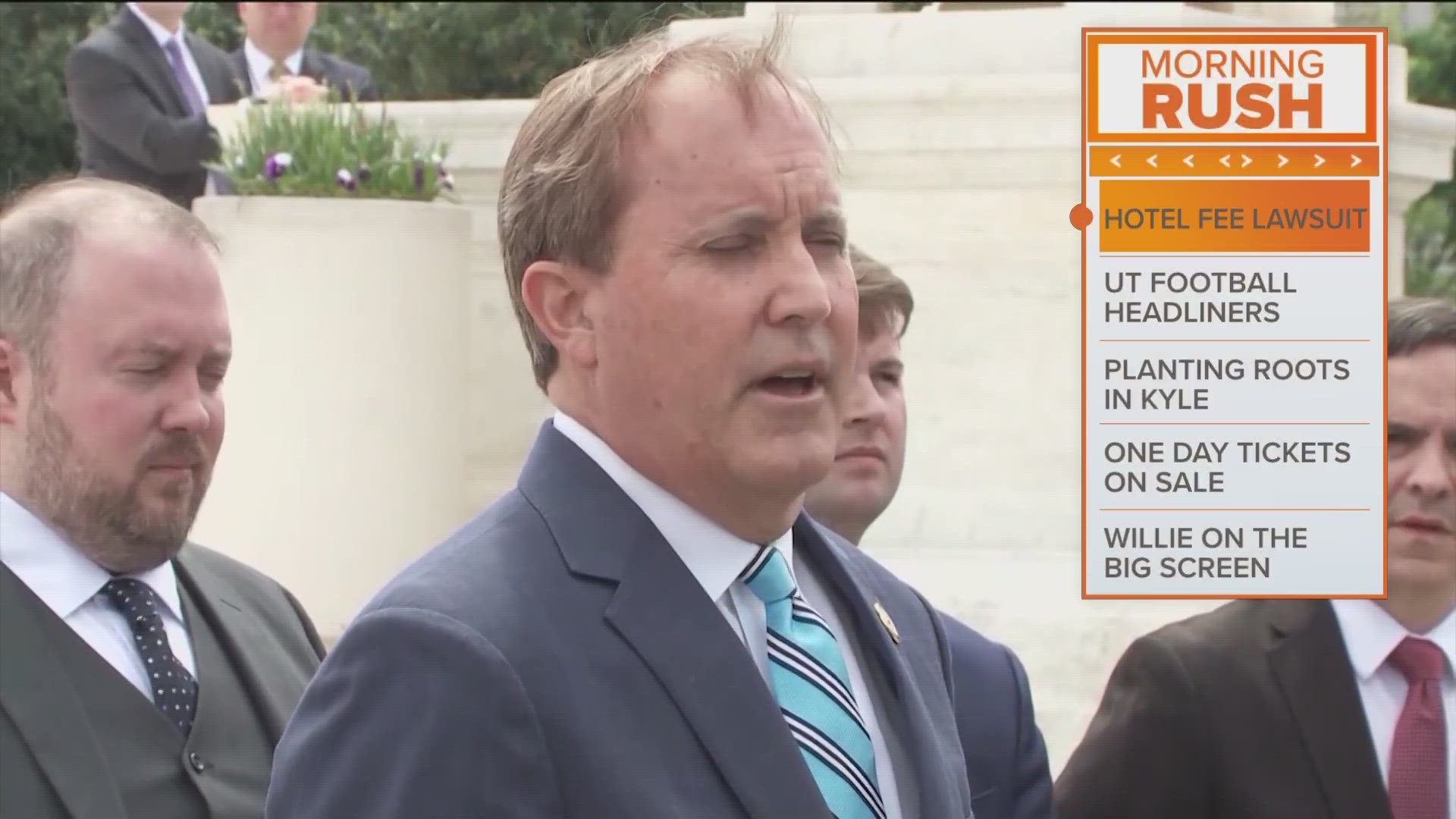TEXAS, USA — Texas Attorney General Ken Paxton said Tuesday his office has filed a lawsuit against Hyatt Hotels, doing business as Hyatt Corporation, for violating Texas consumer protection laws by marketing hotel rooms at prices not available to the general public as advertised.
A release from Paxton's office said the hotel chain implemented the practice by charging mandatory and unavoidable fees such as resort fees, destination fees and amenity fees, added to the daily room rates.
"Even when these fees were eventually disclosed, they were done so in a manner that was unlikely to alert consumers that the initial rate that attracted them was not, in fact, the actual price of the room," Paxton said in the release.
The suit alleges many of the extra fees have nothing to do with the customer experience. For example, resort fees charged by hotels do not necessarily align with “resort-like” experiences.
In some cases, a significant portion of the amenities purportedly covered by resort fees, like access to a fitness center and in-room Wi-Fi, are regularly offered for free at non-resort properties.
Hyatt also charged those fees regardless of whether consumers used the amenities.
“Hyatt’s lack of transparency regarding hotel room prices has misled consumers and violated Texas law,” Paxton said. “These deceptive practices enabled Hyatt to advertise lodging at artificially low rates, and it must end immediately. I will not stand by while Texas consumers are taken advantage of by Hyatt, or by any hotel chain that tries to get away with charging illegal hidden fees.”
Hyatt operates hotels worldwide, including in Texas, under brand names such as Hyatt, Grand Hyatt, Hyatt Regency, Hyatt Place and Thompson Hotels.
The lawsuit was filed in Comal County. In paperwork filed, one Hill Country property "extrapolated over the course of a year for every room, amounts to $7,456,950 in fraudulent charges." Another property is alleged to have collected more than $2 million in mandatory fees in a year.
To read the full lawsuit, click here.
In a later release, Paxton said his office has entered into a settlement with Marriott International, Inc. to ensure the company properly discloses “resort fees” and other hidden costs to consumers in its advertisements and during the room booking process.
“My office has worked diligently to ensure that hotel chains and other companies in the travel industry are completely transparent with consumers,” Paxton said. “In recent years, travelers have been caught by surprise with costs much higher than the room rates they believed they had booked. Because of this settlement, Marriott will take additional steps to guarantee that the advertised cost of rooms is representative of what consumers will be charged. Marriott is now taking proactive steps to promote price transparency. In contrast, other major hotel chains have defended their deceptive practices, and they will be facing the full force of the law for their actions.”
The settlement will keep Marriott from engaging in unlawful, unfair and deceptive trade practices in violation of Texas law with respect to the advertising of hotel room prices, Paxton said. The terms include a requirement that Marriott disclose clearly and conspicuously all “resort fees” and the total price of rooms as the most prominently displayed price, display room reservation search results for rooms by total price on its website, list “resort fees” separately from taxes or other governmental or imposed fees and disclose clearly and conspicuously the goods and services covered by such fees.

